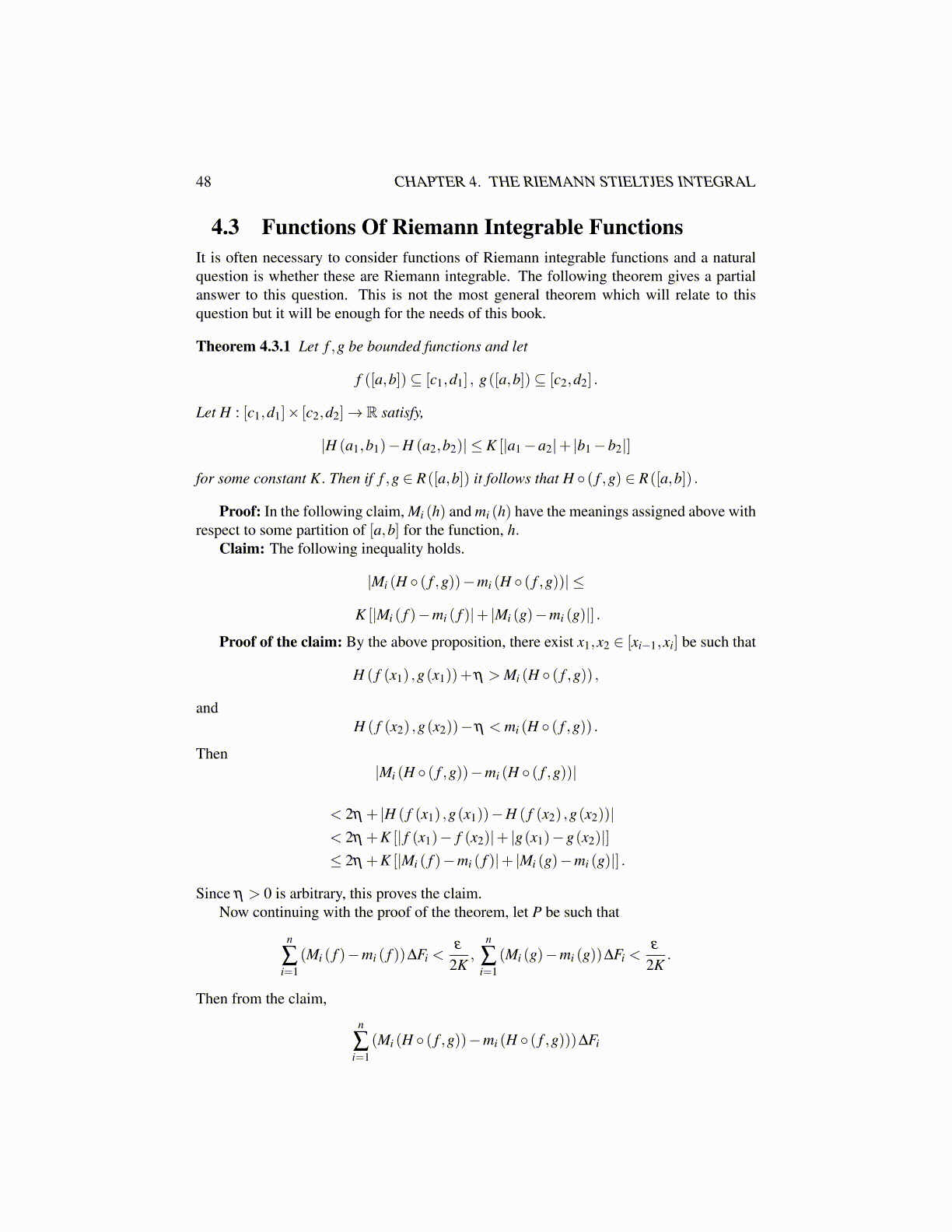
48 CHAPTER 4. THE RIEMANN STIELTJES INTEGRAL
4.3 Functions Of Riemann Integrable FunctionsIt is often necessary to consider functions of Riemann integrable functions and a naturalquestion is whether these are Riemann integrable. The following theorem gives a partialanswer to this question. This is not the most general theorem which will relate to thisquestion but it will be enough for the needs of this book.
Theorem 4.3.1 Let f ,g be bounded functions and let
f ([a,b])⊆ [c1,d1] , g([a,b])⊆ [c2,d2] .
Let H : [c1,d1]× [c2,d2]→ R satisfy,
|H (a1,b1)−H (a2,b2)| ≤ K [|a1−a2|+ |b1−b2|]
for some constant K. Then if f ,g ∈ R([a,b]) it follows that H ◦ ( f ,g) ∈ R([a,b]) .
Proof: In the following claim, Mi (h) and mi (h) have the meanings assigned above withrespect to some partition of [a,b] for the function, h.
Claim: The following inequality holds.
|Mi (H ◦ ( f ,g))−mi (H ◦ ( f ,g))| ≤
K [|Mi ( f )−mi ( f )|+ |Mi (g)−mi (g)|] .
Proof of the claim: By the above proposition, there exist x1,x2 ∈ [xi−1,xi] be such that
H ( f (x1) ,g(x1))+η > Mi (H ◦ ( f ,g)) ,
andH ( f (x2) ,g(x2))−η < mi (H ◦ ( f ,g)) .
Then|Mi (H ◦ ( f ,g))−mi (H ◦ ( f ,g))|
< 2η + |H ( f (x1) ,g(x1))−H ( f (x2) ,g(x2))|< 2η +K [| f (x1)− f (x2)|+ |g(x1)−g(x2)|]≤ 2η +K [|Mi ( f )−mi ( f )|+ |Mi (g)−mi (g)|] .
Since η > 0 is arbitrary, this proves the claim.Now continuing with the proof of the theorem, let P be such that
n
∑i=1
(Mi ( f )−mi ( f ))∆Fi <ε
2K,
n
∑i=1
(Mi (g)−mi (g))∆Fi <ε
2K.
Then from the claim,
n
∑i=1
(Mi (H ◦ ( f ,g))−mi (H ◦ ( f ,g)))∆Fi